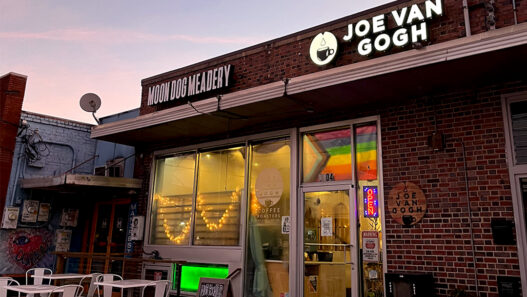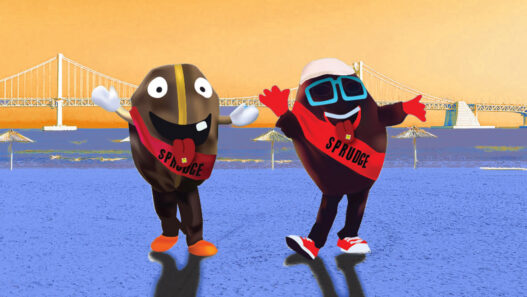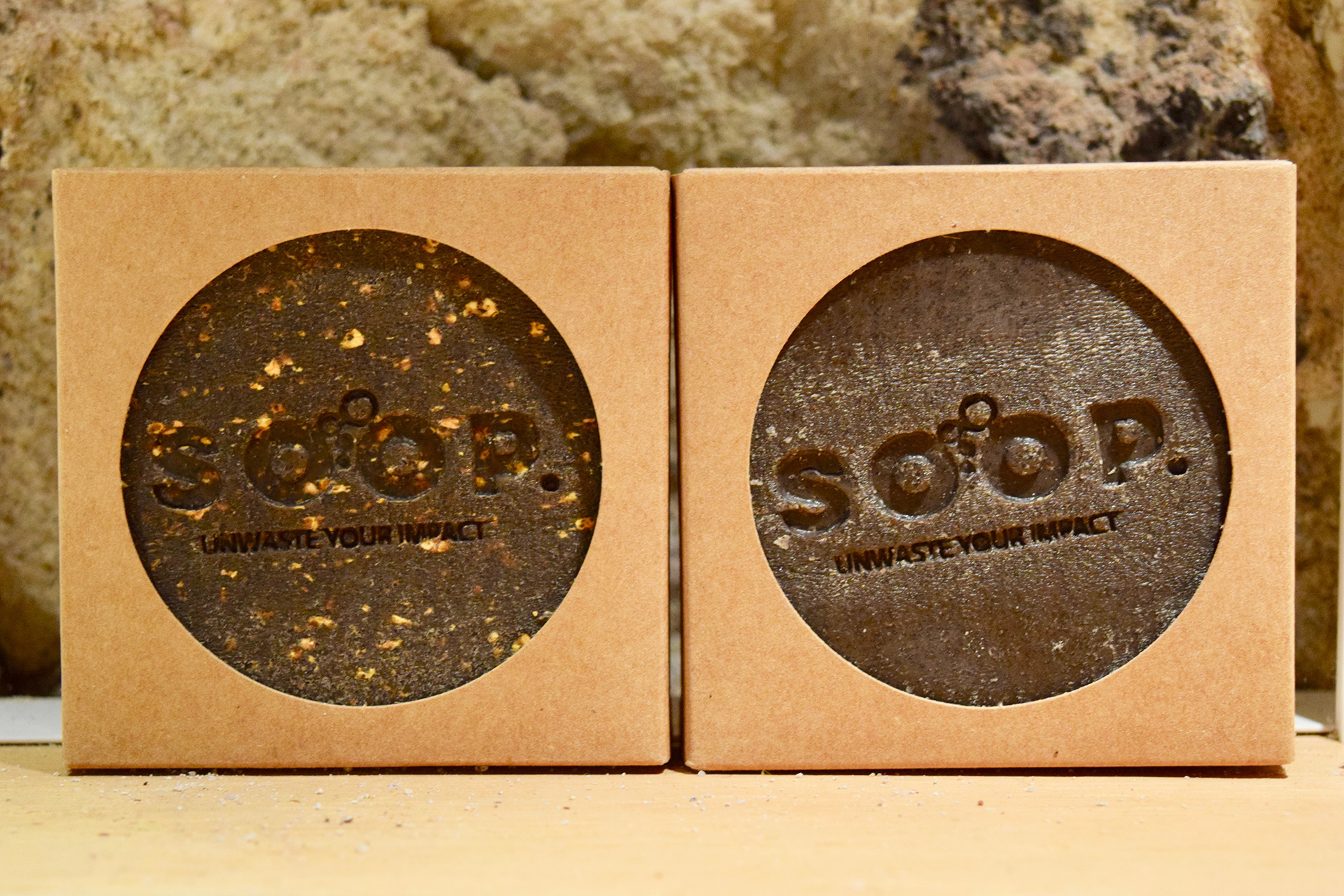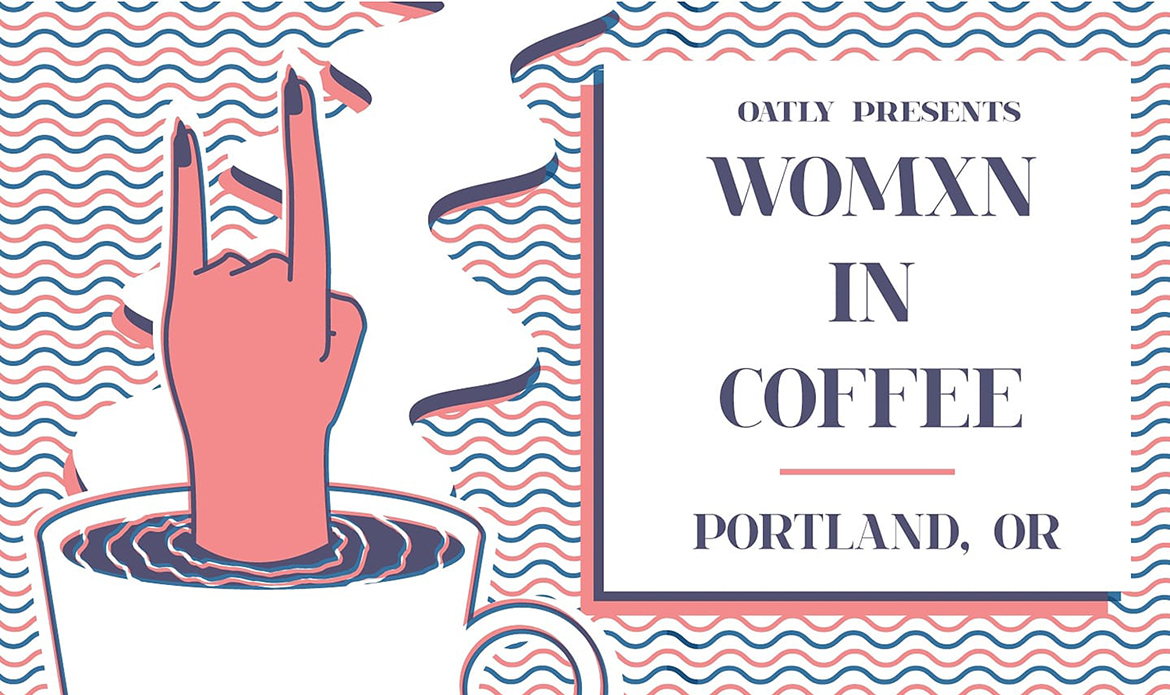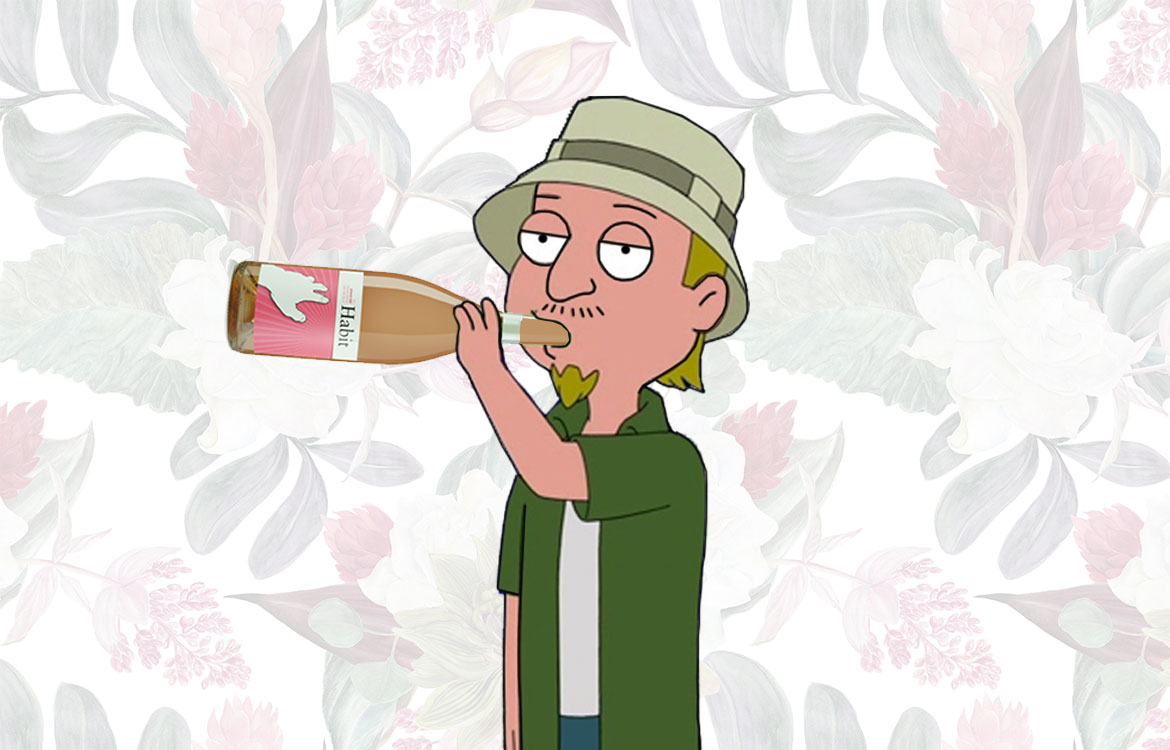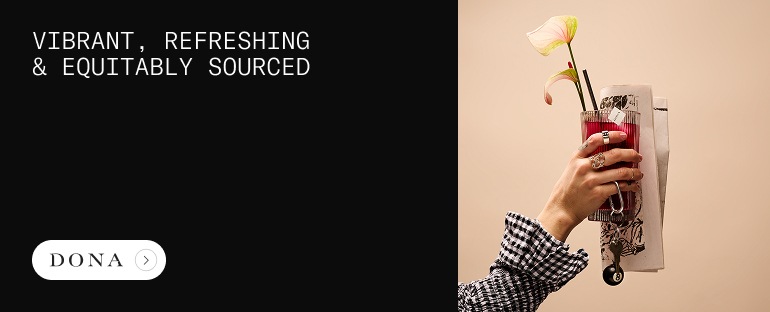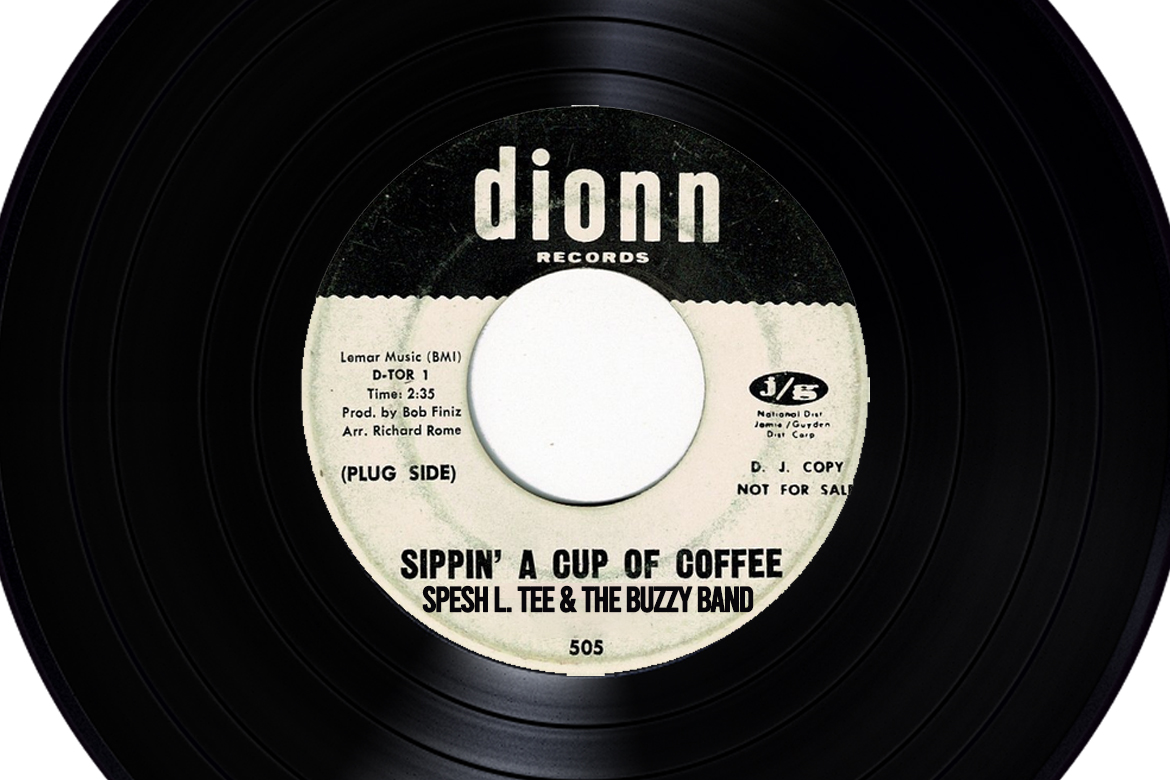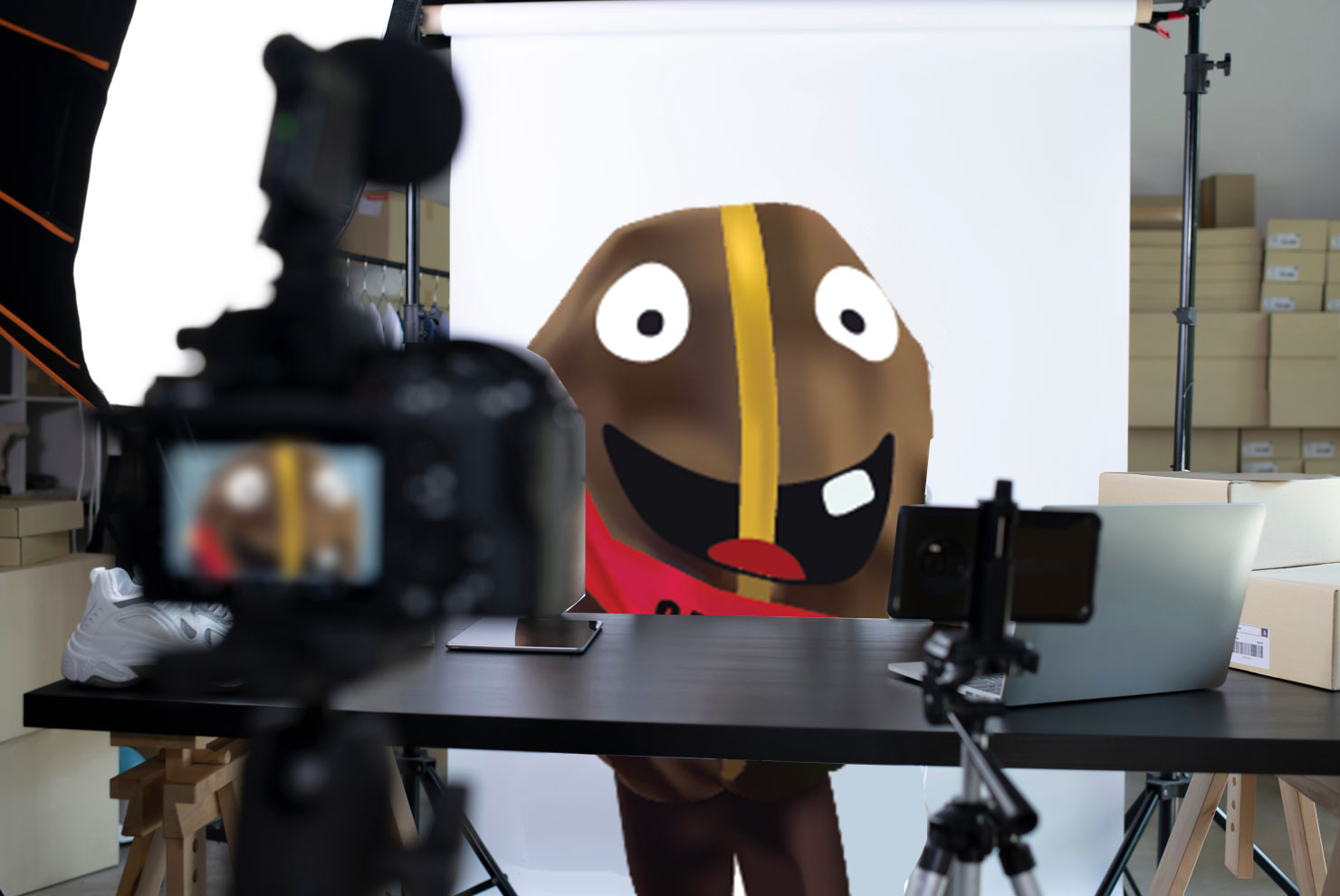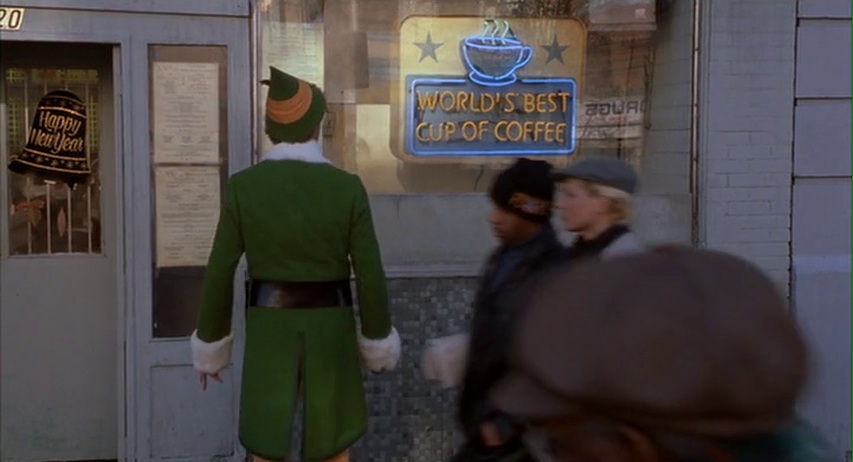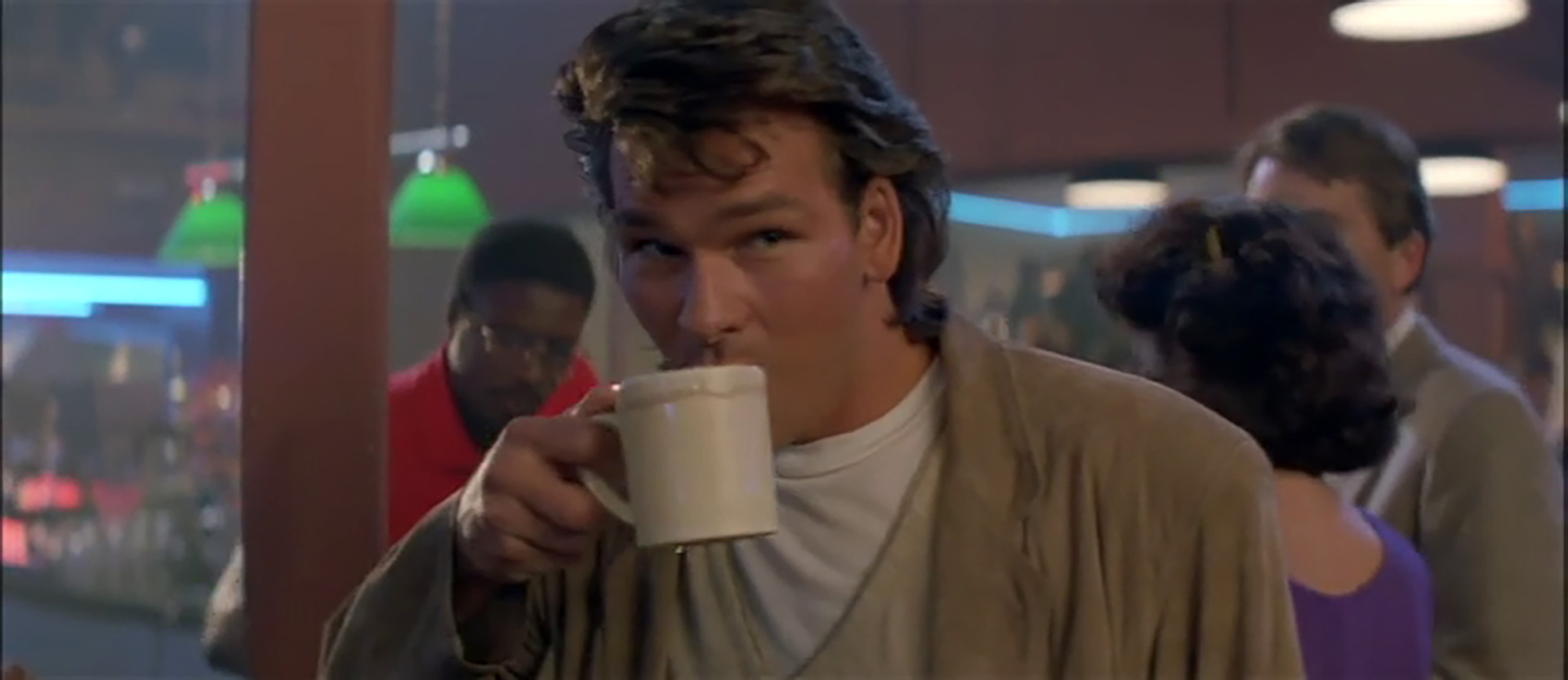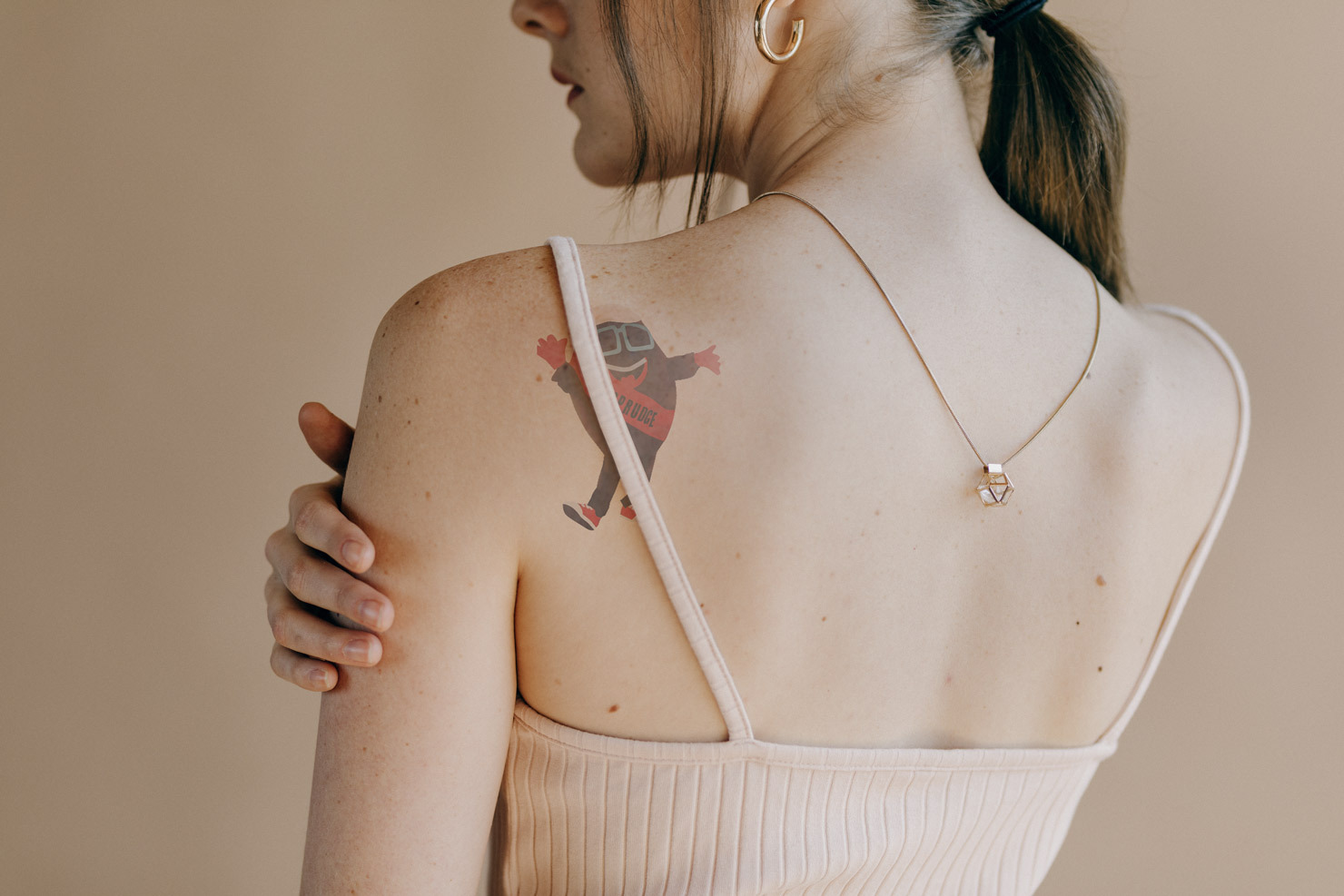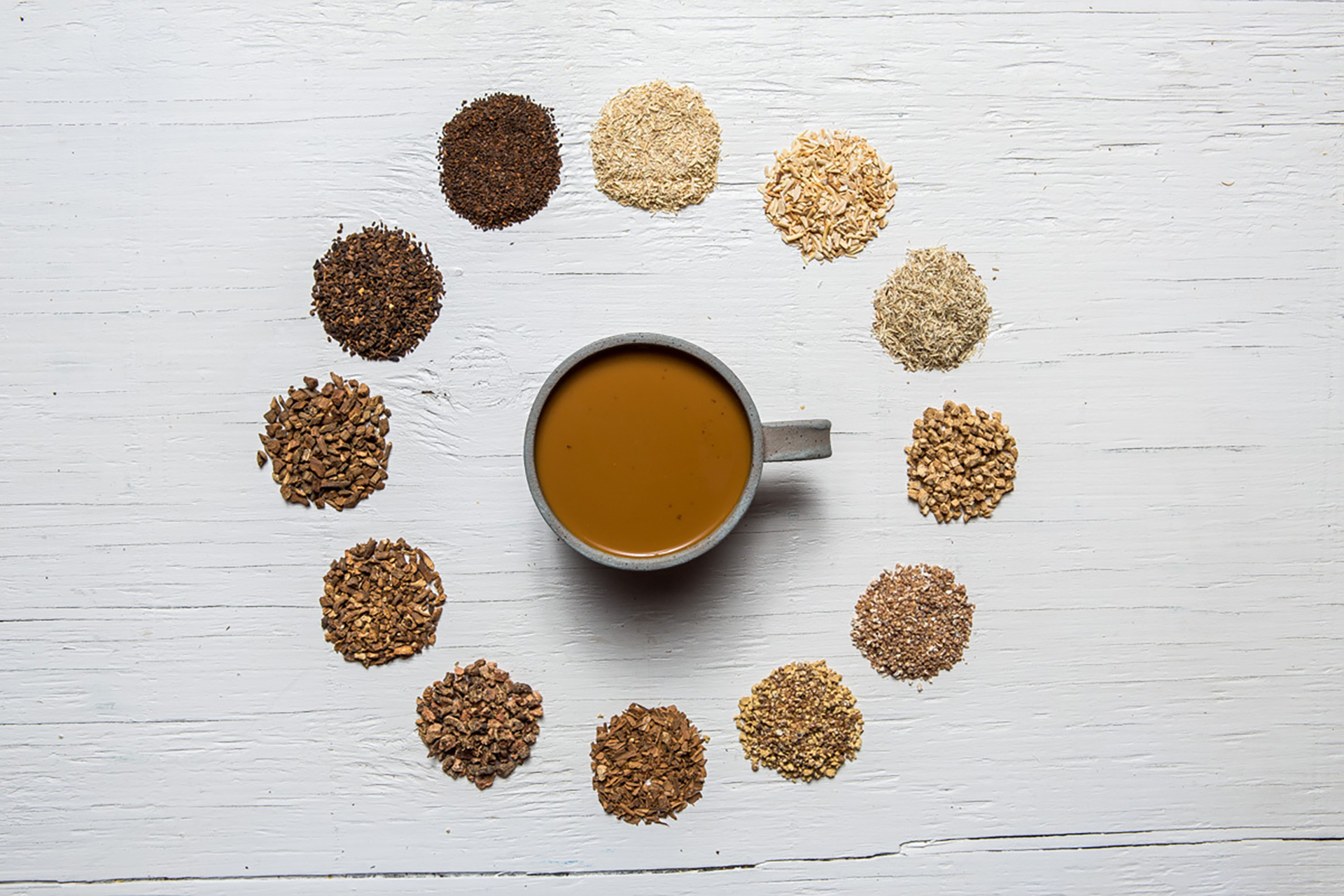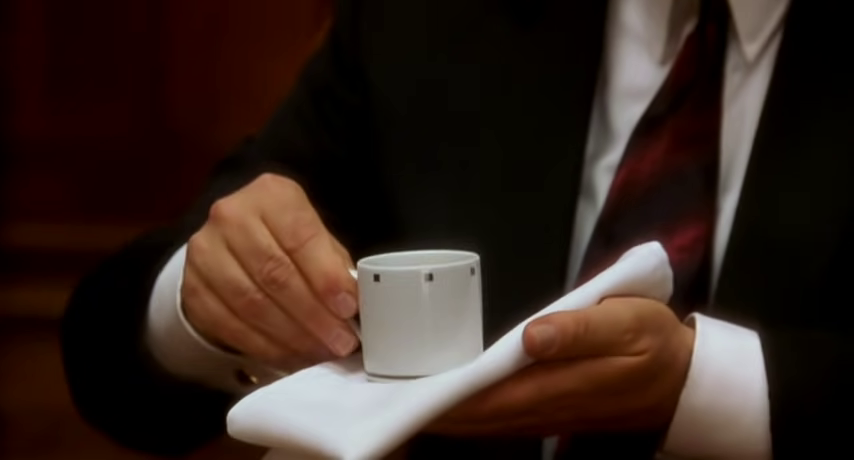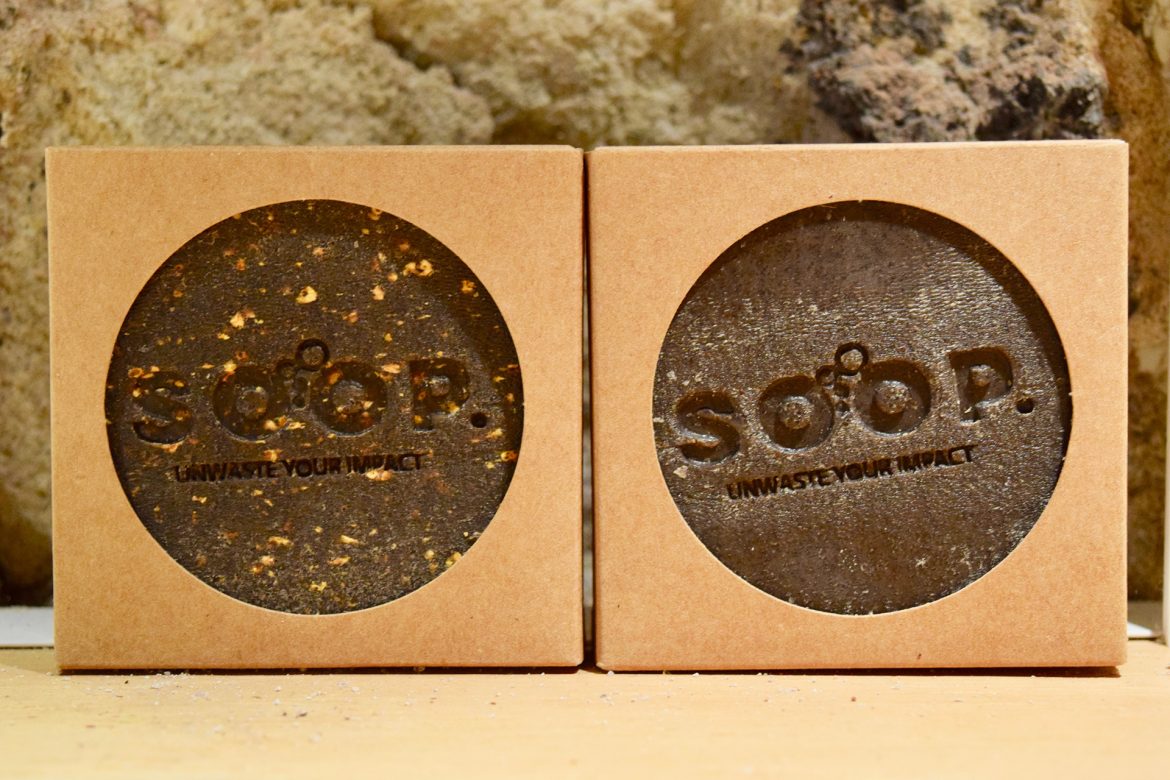
Though there is no Ctrl-Z for much damage done to the Earth, there are ways to boost environmental sustainability. In this spirit, one product making a splash in and around the Netherlands is SOOP, a hand and body soap made from coffee grounds and orange peels.
SOOP is the signature product of BeeBlue, an Amsterdam-based collective working to upcycle organic waste streams, converting them into ecological, social, and economic resources. Robert-Willem Dol and Noor Buur co-founded the company in September 2016. Two years later, SOOP became available internationally. It comes in three bar variants (coffee with orange oil, coffee with orange oil and peels, and orange peels with orange oil) and two liquid (orange and coffee, which both contain orange oil).
To learn more, Sprudge spoke with Buur and, at BeeBlue headquarters, got the opportunity to witness coffee’s full sudsy potential.
Your website describes how in his own kitchen, Robert-Willem started playing around with coffee grounds and orange peels to come up with the idea of using them in soap. What prompted the experimentation in the first place?
Robert-Willem started experimenting with the idea of “stop wasting my waste,” which was sparked by frustration with how we treat waste in our societies. Waste is a human concept; nature does not “produce” waste. Meanwhile, in the Netherlands alone, the consumption of coffee and fresh orange juice produces 155 million kilos of coffee grounds and 250 million kilos of orange peels each year. These resources are widely considered an inevitable part of our day-to-day consumption and get discarded into organic waste streams. But this can be handled better if we see waste as a resource and use it in a circular way. Coffee grounds are a powerful natural scrub, and orange peels work as a natural skin booster and fragrance. The shift towards a circular economy and a more sustainable economic system feels abstract and big, but SOOP, as circular soap, makes it tangible.
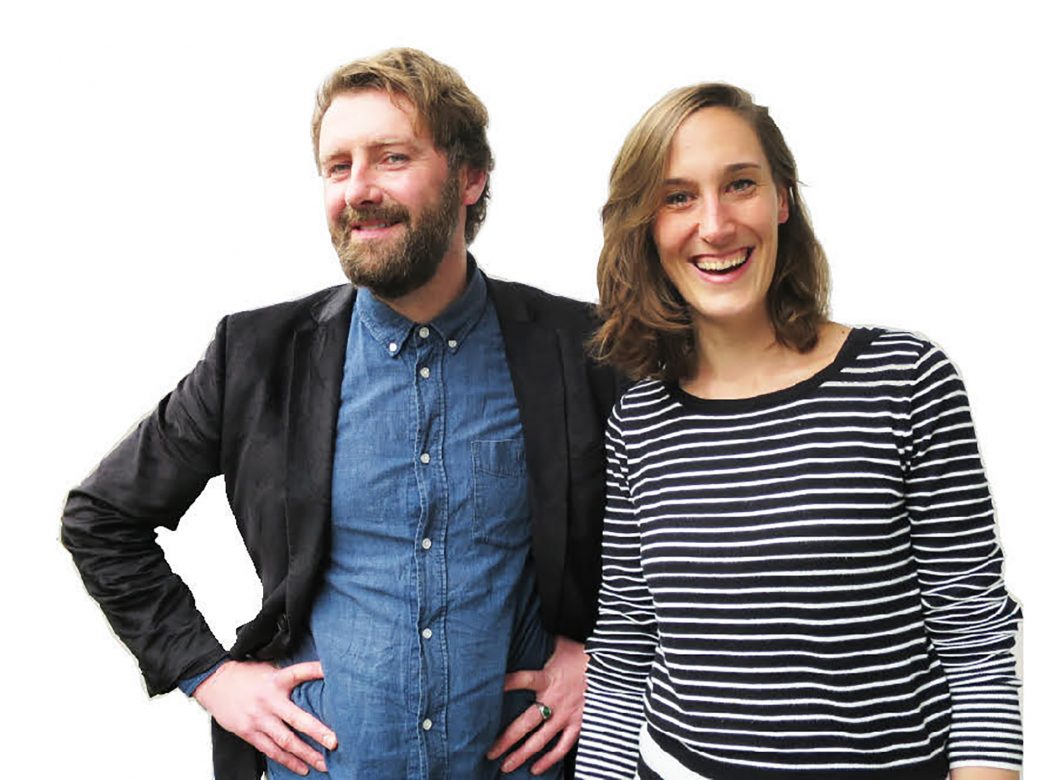
What sets SOOP apart from other soaps?
SOOP is made of palm-oil-free certified resources, is biodegradable, and does not contain microplastics. In this regard, SOOP stands out but is not unique (fortunately!). SOOP is unique, however, in using “waste” as a valuable, function-serving resource.
How exactly do the coffee SOOPs get made?
SOOP is produced by existing soap-processing factories in the Netherlands. The bars are produced using a palm-oil-free soap emulsion; the liquid is a Marseille soap. Our coffee grounds and orange peels are treated in a way that makes them safe, functional ingredients in accordance with Dutch laws on soap and cosmetics. The smooth coffee bar is made with dried coffee grounds and orange oil extracted directly from orange peels; the textured coffee bar also contains pieces of orange peel. Both are effective as an exfoliant, colorant, fragrance, skin booster, and cleaner.
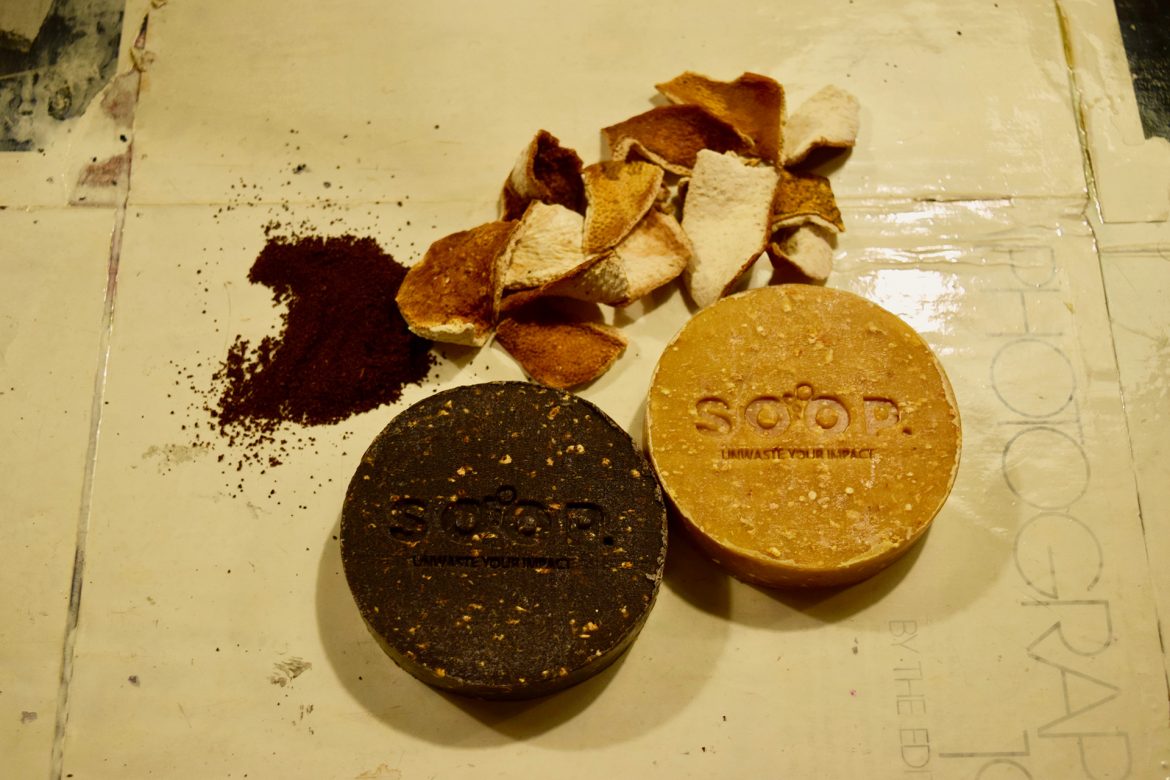
Where do you source the grounds and peels?
Our innovation in the field of the circular economy started with product development, yet in order to actually produce SOOP, we quickly had to get familiar with the world of waste. Because the logistics involved in collecting, drying, and treating coffee grounds and orange peels are so major, we cooperate with professionals in different fields. We work with PeelPioneers, an orange peel-recycling company in the Netherlands, which sources peels from Dutch retailers (for example, supermarkets with a fresh juice press in store). The coffee grounds are currently collected for us by a production company, but we are in the process of trying to find waste management companies to team with. Presently, the coffee grounds come from everywhere, but for the future, we’re focusing on collecting them mainly from the offices of companies, organizations, and hotels.
BeeBlue has made clear that the organization also values social return. How is that incorporated into the SOOP business model?
SOOP partners with Amsterdam’s social-return employment company Pantar (which gives jobs to people who for circumstantial or personal reasons experience disadvantages on the labor market). Individuals employed through Pantar service the coffee machines at the City of Amsterdam’s various offices, and collecting the grounds had been part of their daily work. Due to our scalability needs, we eventually had to turn to another, larger-capacity service that could collect the grounds, but Pantar currently does the handling for SOOP, which includes packaging, product labeling, and part of the transport.
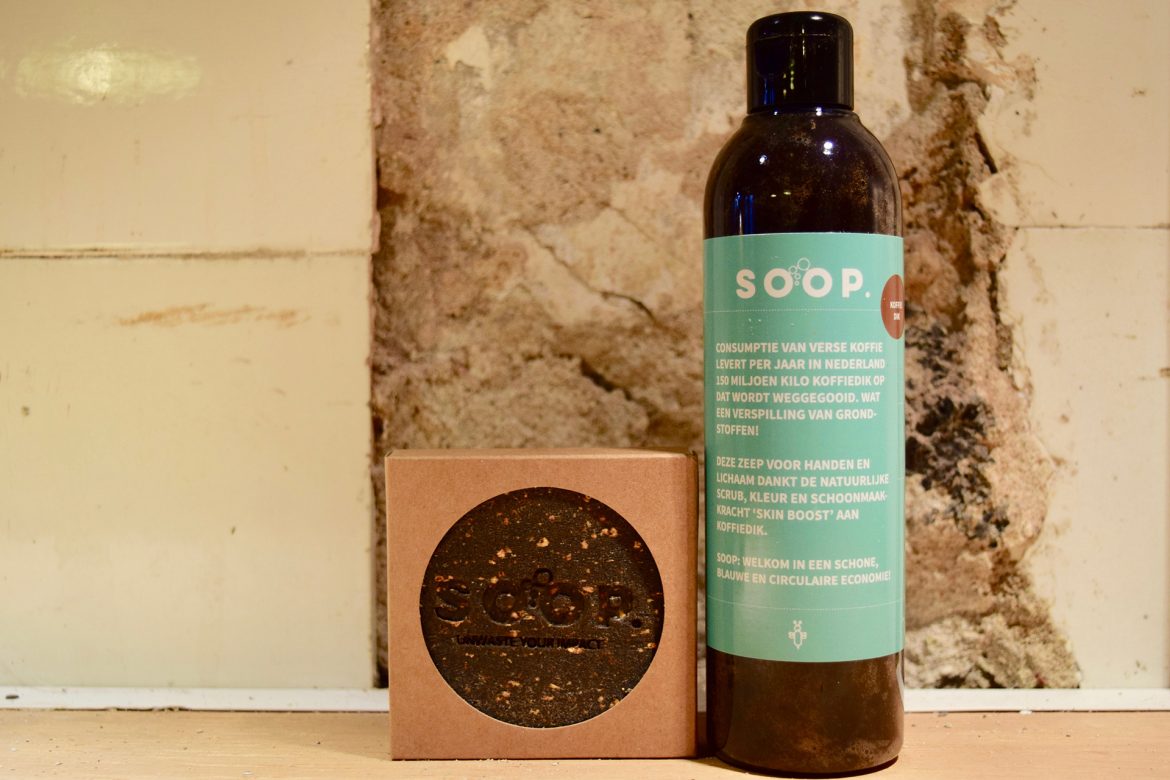
Tell us about the packaging.
Incorporating sustainability into packaging is a challenge, but it is very much needed. The SOOP bar’s cardboard wrapping is made of recycled carton, which can, in turn, be recycled. The SOOP liquid bottles are made of recycled PET, which can also be recycled. The product labels are FSC-certified.
Your Facebook page shows photos of SOOP at the Dutch Embassy in Ethiopia and at a Hotelschool The Hague presentation. How did SOOP find its way to those events?
SOOP finds its way all over the world, and that is simply because people we talk to and work with see themselves as ambassadors of SOOP and tell our story. For example, the Netherlands Enterprise Agency arranged to have SOOP sent to Dutch embassies worldwide as a leading example of circular innovation that has sprung from Dutch soil. SOOP was a part of the Next Way of Living pop-up store at Dutch Design Week. SOOP has also found its way into the promotional and Christmas package sector, such as through sustainability-focused gift companies and Geschenk met Verhaal.
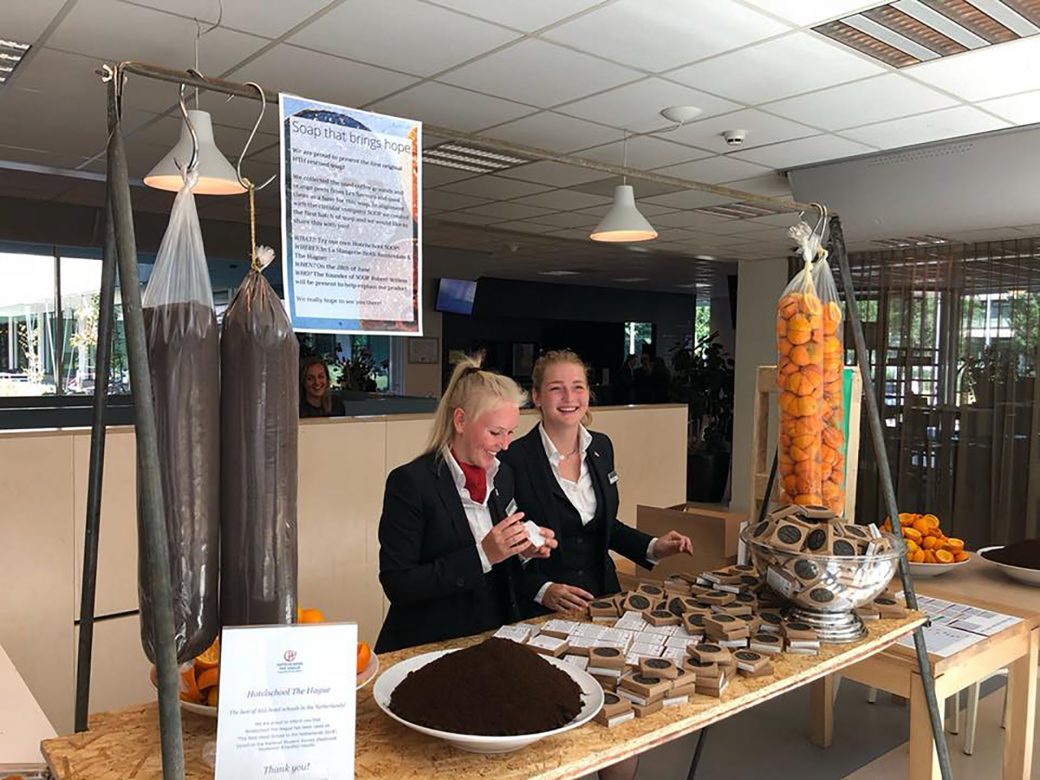
Sales of SOOP began in late 2018 at Dutch and Belgian home goods chain Dille & Kamille. Your products have also been made available online through Next Way of Living. What’s in store for the future?
We’re developing SOOP for institutional dispensers, so it can serve as a day-to-day soap in offices and hotel settings. To reach individual consumers, we will continue partnering with our existing webshop and retail partners. This is not a regular soap, but we want it to become your regular SOOP!
Karina Hof is a Sprudge staff writer based in Amsterdam. Read more Karina Hof on Sprudge.






